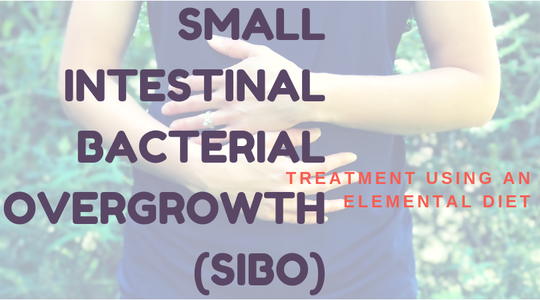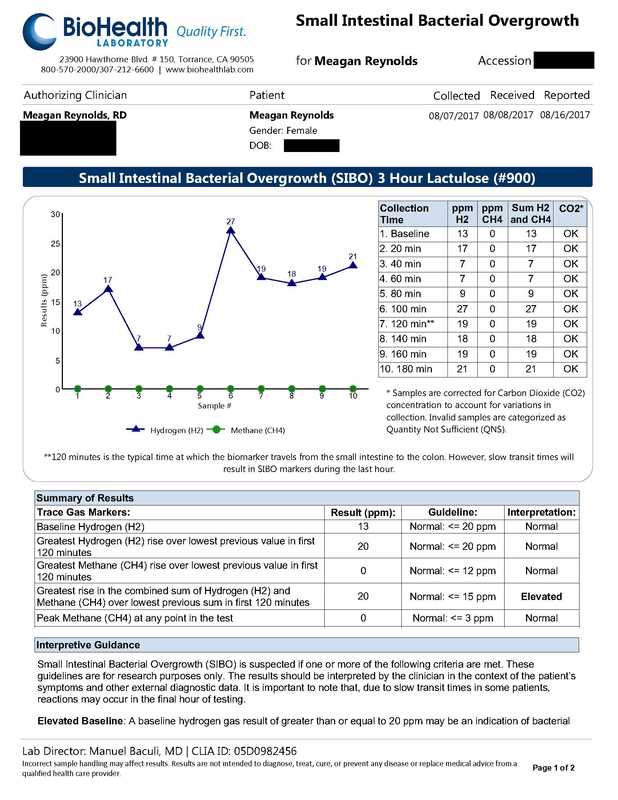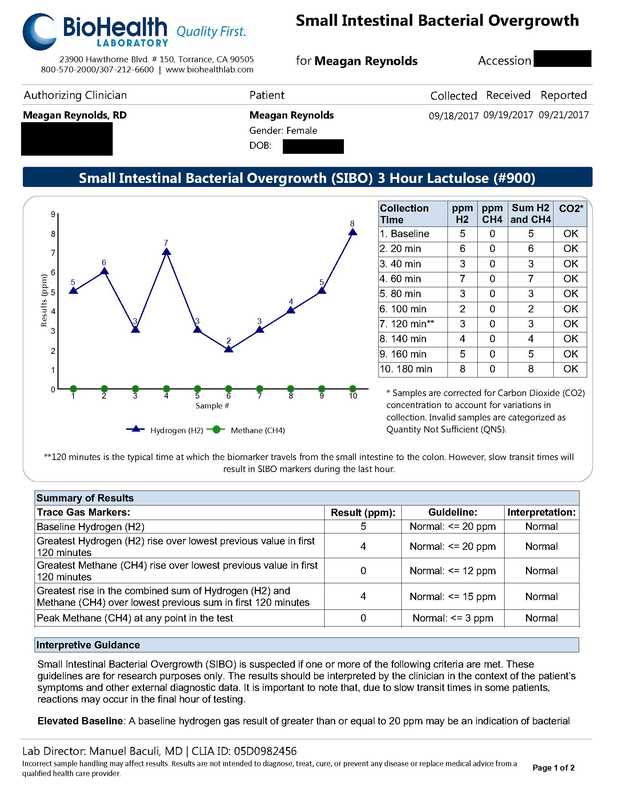|
Gluten has been the topic of hot debate by a growing number of healthcare providers.
The literature is overflowing with the detrimental impact gluten has on the intestinal wall. When you eat gluten, your body produces a molecule called zonulin. The increase in zonulin is linked to increased intestinal permeability aka: leaky gut. Leaky gut can create a cascade of damaging health issues including autoimmune disease and many inflammatory diseases. To read the full article from Functional Medicine University, click here. Compliments from Functional Medicine University. With the New Year, you may be motivated to make yet another stab at your weight loss attempt or have already felt defeated with the progress you’re making. Clients who come to me often eat very carefully, exercise regularly, and feel like they’re doing everything right, but they feel stuck because the weight is not budging. Does this sound like you? Diet and lifestyle are the obvious factors that are driving the weight merry-go-round, but there are other underlying causes that can throw a wrench in your progress. If you’ve already exhausted yourself with diet and lifestyle and are not getting the results that you’re looking for, then tune in. You may be surprised at what’s keeping you from shedding those extra pounds and causing inflammation in your body.
Find Out What Your Food Triggers Are Most people don’t think of trying a food elimination diet if they’re having difficulty losing weight, but this can be very insightful into uncovering your hidden symptoms and a powerful push in dropping stubborn pounds. Food allergies are often easy to identify because it triggers an extreme reaction. However, identifying food intolerances or sensitivities are not easy because the symptoms can be vague. Helping clients uncover food sensitivities is one area I work with in my clients. And often the results they get are extremely shocking once the food is eliminated and then reintroduced properly. Food sensitivity testing can be useful in some cases, but they can also commonly generate false negative and false positive results. The gold standard for testing is by doing an elimination diet to test your bodies response. If you’re new to an elimination diet and don’t know where to begin, then a good base to start from is by taking the foods out of your diet that you frequently eat every single day. For most people, it’s gluten and dairy. These two foods commonly make their way into every meal, if not all three. They are also two foods that I see that cause the most issues in people. Weight struggles can also be a result of an autoimmune disease. Now if you have an autoimmune condition or have already tried a gluten and dairy-free diet and are still experiencing symptoms, then following the Autoimmune Paleo diet can be very helpful in further determining the foods that could be problematic or unhealthy for you. This diet eliminates nightshade vegetables, grains, eggs, beans, legumes, soy, nuts and seeds, and a few others. Now keep in mind as you’re eliminating these foods, you’re also following a nutrient-rich, anti-inflammatory diet as this is key for any diet you follow. You will also want to strictly avoid these potentially reactive foods for a minimum of two to six weeks, and possibly longer before you introduce each one at a time. For more information on how to effectively do an elimination diet, stay tuned for my next post. The Scoop on Thyroid Dysfunction The health of your thyroid has a direct impact on your metabolism. And when your metabolic function is disrupted, you gain weight that is not easily lost. A very classic symptom of low thyroid function is weight gain despite adhering to a low-calorie diet. The body is throwing up a flag saying, “Pay attention to me.” If you’re one of these people, you may have a thyroid problem. I recommend requesting a full thyroid panel that includes TSH, Free T3, Free T4, Reverse T3, TPO Ab, and TGB Ab. You can develop a thyroid disorder at any age, so routinely checking a full panel is recommended if you have a family history or have many classic thyroid symptoms. Unfortunately, many thyroid disorders don’t get caught early leaving many people suffering. This is because their labs fall within the “normal” range when they get tested, or only a TSH test is ordered. What’s considered “normal” for most thyroid markers in conventional medicine is by far not optimal. If you have thyroid symptoms, but your doctor states that everything looks great with your labs, it’s worth your health to seek out a holistic or functional medicine practitioner that can take a closer look for you and possibly address the conditions that caused the thyroid to slow down if that is indeed the case. Further, a lot of people feel that if they get on thyroid medication they will lose weight, but since it doesn’t address the root cause of the thyroid imbalance, it often doesn’t work. Address Gut Infections If our gut health is poor, we suffer. Most chronic diseases, including obesity and weight gain, benefit greatly when we heal our gut. If you think of your gut in terms of a garden, this will help you get a clearer picture of how important gut health is. For healthy plants, you need healthy soil that is balanced with the proper pH and nutrients so your plants can thrive. The same goes for your gut. If the balance of healthy gut flora is disrupted by things like stress, alcohol, high sugar intake, poor diet, and certain medications like ones to suppress stomach acid and antibiotics, then this will lead to dysbiosis, which is just an imbalance of healthy gut flora. Now if your garden has a poor pH, then it increases your chances of developing invasive weeds and may result in increased problems with disease in your plants. Again, the same goes for our gut. If your healthy flora is disrupted, common infections like parasites, Candida, and small intestinal bacterial overgrowth (SIBO) can easily develop. In my practice, I suspect dysbiosis in anyone with digestive issues, which include symptoms of gas, bloating, constipation, diarrhea, indigestion, and reflux. You can test for gut pathogens, but some of the best functional stool tests can have false negatives, so I tend to rely heavily on symptoms. Cleaning up the diet and adding probiotics and fermented foods can help, but it’s often not the fix, especially if you have a very invasive weed in your garden. A more targeted approach would be warranted using antiparasitic and antifungal herbs to properly restore balance. Address Nutrient Deficiencies Nutrient deficiencies are due to many things including certain medications, stress, diet, lifestyle, and heavy metal toxicities. If we’re deficient in a vitamin or mineral, it can create other deficiencies and also affect other body systems including our hormones and our ability to effectively detox. So, if you’re trying to lose weight and you lack certain nutrients, this can slow down your metabolism. Deficiencies can also create many symptoms that one would likely get you prescribed a drug that would further deplete the very nutrient that caused the symptoms in the first place; It’s a vicious cycle! Vitamin D may be the first deficiency caught because it’s commonly the only vitamin that is included in a health screening. Vitamin D is extremely important to address if deficient or suboptimal as this can affect your ability to lose weight. Others important nutrients to look into include zinc, selenium, vitamin A, iron, magnesium, and vitamin B12 because they are all required for the thyroid to function properly, which affects your metabolism. Symptoms and medication history can be used to determine which supplements are appropriate, but testing is ultimately the best, especially if you continue to struggle with symptoms and weight issues. Sometimes testing individual nutrients is all that is needed, but for a more comprehensive approach, I prefer to check a whole panel. I use SpectraCell’s Micronutrient test as it measures 31 vitamins, minerals, amino/fatty acids, antioxidants, and metabolites at an intracellular level. Mind-Body Interventions It’s next to impossible to avoid most of the stress we encounter in our lives often due to a full-time job and family life, but how we view stress and how we handle it can make a significant difference in how it affects our health. Cortisol is the most powerful stress hormone that is associated with weight gain, especially around the belly. Small cortisol surges are normal and healthy to get us through the day, but chronic surges in cortisol not only contribute to weight gain but the inability to lose it too. If you’re constantly analyzing or thinking about negative events, are in an unhealthy relationship, or are miserable at your job, they are all contributing to your weight. Mind-Body exercises like yoga, Tai Chi, breathwork, meditation, and scheduling daily self –care are ways to attenuate the stress response and reduce the risk of stress-induced diseases. They’re also powerful tools in moving your life in a more positive direction so that you’re in a healthier state to make needed changes to your life. However, just like exercise, you have to do it consistently to experience the benefits, so you will want to find something that you enjoy doing that you can commit to. Stick the Course Once you make up your mind to adhere to a specific health protocol, don’t stray from it. And when you do, get right back to it. This will make for easier adjustments if needed to continue your weight loss journey. If you hit a plateau or get stuck with your progress, seek support to get you moving in the right direction. At the end of the day…just remember that every step you take is a step that is moving you closer to your goal. If you feel you need a little extra guidance, you can contact me. Small intestinal bacterial overgrowth, better known as SIBO, is just as the name implies; it’s an overgrowth of bacteria in the small intestine. Many classic symptoms of irritable bowel syndrome such as gas, bloating, abdominal discomfort, diarrhea, and constipation are identical to that of SIBO, and it has been suggested as a possible cause in IBS. (1) As the bacteria eat the food we eat and ferment the high carbohydrate component of the meal, this fermentation is what causes the symptoms. SIBO causes inflammation within the small intestines that may interfere with the absorption of nutrients leading to the symptoms associated with SIBO as well as nutrient deficiencies specifically of the fat-soluble vitamins A, D, and E. (2) SIBO can often float under the radar and be challenging to identify as it does not always present itself in a clear picture. The symptoms caused by SIBO can be very mild, or they can be severe and cause great distress for the individual. My Story Personally, there have been many layers that I have had to peel back and examine in my health journey due to having Hashimoto's, and SIBO was one of them. My symptoms were frequent and sometimes severe bloating, mood swings, extreme fatigue, weight loss, anxiety, and just a general feeling of being run over by a semi-truck. I ran a complete stool analysis at the time, which came back normal. My symptoms started shortly after having my son coupled with a huge career move for both my husband and I. I just correlated it to significant hormonal shifts, adjustment to motherhood, and financial stress of starting new businesses. Being a new mom is naturally exhausting, and I know it was truly the spark that set off my Hashimoto's. Two things that are known to affect gut motility are stress and autoimmune disease, and the most common reason SIBO develops is from a motility issue. The function in the gut that sweeps residual debris through the GI tract, known as the migrating motor complex (MMC), often does not work efficiently in motility disorders, and bacteria may not be moved from the proximal bowel to the colon. I had both of those going against me, but I kept making myself believe that all my symptoms were normal and would resolve once everything calmed down. The results on the top are my first lactulose breath test (LBT) that confirm SIBO, and the results on the bottom are the repeat LBT after completing a 3-week elemental diet protocol. As you can see, the repeat is normal. My results were not as high as some others that I have seen, but my symptoms in conjunction with my results were enough confirmation for me. Diagnosis of SIBO SIBO is commonly diagnosed using a breath test with a lactulose or glucose substrate. It is noninvasive and low cost, which makes it the preferred route for testing. The individual will drink either substrate, then blow into a bag that has a vial attached to capture various breath samples over a defined period. Lactulose is a nonabsorbable disaccharide that is metabolized to short-chain fatty acids in the colon and glucose is a monosaccharide that is completely absorbed in the proximal small intestine. In the presence of SIBO, fermentation of either one produce gases that can be measured in a breath test. Another way of diagnosing SIBO involves obtaining a culture of an aspirate from the jejunum. This method is invasive, costly, and it is not able to reach the distal small bowel, which is why it is not favored in clinical practice. (3) Etiology of SIBO It is best to understand why SIBO developed in the first place to be able to eradicate it and prevent a reoccurrence. If SIBO was eradicated, but it came back, then it’s possible that the cause was never addressed. There are many risk factors and causes for SIBO, and this is by no means an exhaustive list, but the following are some of the most well-known:
Treatment Eradicating SIBO can be challenging due to the underlying issues that caused it and how resistance the bacteria can be to treatment. Some cases clear after one protocol while others require a variety of them over months to years. There is no universally accepted gold standard to treatment, but it is recommended to switch it up if the previous therapy did not work. It's also important to note that there may be other viruses, bacteria, toxins, or pathogens present that are keeping you from clearing SIBO, so patience is key to being successful with whatever route you and your practitioner choose. The antimicrobials used to restore microbial balance are either antibiotics or herbal antimicrobials. Research has shown that herbal antibiotics are at least as effective as Rifaximin (common antibiotic for SIBO) for resolution of SIBO by lactulose breath test. The other treatment option that has been shown to be highly effective at normalizing microbial balance is with an elemental diet. (10) If I have a client that presents with SIBO and they have not tried anything else before seeing me, I typically will try the herbal route first because it allows me not just to address SIBO, but also Candida and other pathogens that commonly accompany it. Elemental Diet If someone has a severe case of SIBO or they have tried other modalities, then I will typically recommend an elemental diet. An elemental diet is the most difficult to do, and it is not for everyone, but it is another great option especially for someone who has severe gut issues or if antimicrobials were unsuccessful. An elemental diet is a medical food diet where the carbohydrates, proteins, and fats are in a readily assimilated form that's easily absorbed into the proximal small bowel, which requires little to no digestive effort. An elemental diet frees up the nutrients so that they can be fully absorbed, it allows the gut to rest and heal, and it doesn’t allow for any fermentation to occur in the small intestines, which cuts off the food source for the overgrowth of bacteria in the small intestines. Typically, an elemental diet is used short-term in individuals with moderate to severe gastrointestinal dysfunction for 14-21 days. Specifically for SIBO, it's used for 2-3 weeks max. Because this will be your sole source of nutrition during this period, you need to know your caloric needs to know how much to drink throughout the day. This will be calculated by your practitioner and adjusted as needed throughout your protocol. If you choose to do it on your own, then a general rule of thumb is 25-30 calories per kilogram of body weight, though each individual's needs will ultimately vary. I was ecstatic to have eradicated SIBO using only an elemental diet. However, my bloating improved, but my energy and some of my other symptoms did not, which was a sign that there was still a lot of work left to do with my health. This is often the case with a lot of people dealing with SIBO because you still need to address the other health issues that allowed the bacteria to overgrow in the first place. Recommended Product for Elemental Diet If you’re interested in making your elemental drink, here is a recipe that is available on siboinfo.com. I have never tasted it, but I have heard it's not the most pleasant. The only company that makes an elemental diet that I currently recommend is Physicians' Elemental Diet by Integrative Therapeutics, which is what I used for my SIBO. There are other brands available, but due to the their ingredients, I don't recommend them. Integrative Therapeutics recently came out with a revised dextrose-free version that is great for those dealing with Candida, fungal overgrowth or who have a glucose sensitivity. The product is called Physicians’ Elemental Diet Dextrose-Free, and it contains 10 grams less sugar per serving than the original Physicians’ Elemental Diet as it substitutes maltodextrin in place of dextrose. I prefer this form since it's not as sweet, is lower in carbohydrates, and you don't risk worsening any underlying fungal issues that you may not even be aware of. Is an Elemental Diet Right For You? As a dietitian in functional nutrition in my own healing journey, I have used myself as a guinea pig to test out the protocols, diets, and detoxes that I use in practice. There are a couple of reasons I chose the elemental diet. For one, I wanted to try the elemental diet so that I could know firsthand what my clients may have to go through from everything to the physical aspect of not eating to the emotional aspect that comes with the diet. The second reason was that I wanted an easy route. This included a break from cooking, preparing, and thinking about food. It’s important to assess where you’re currently at so that you can choose what’s best for you. A minimum of two weeks on an elemental diet is recommended, followed by retesting, and if positive, another week on the diet is typically suggested before retesting. I ended up doing it for three weeks before testing so that I did not have to potentially retest, but I wouldn't recommend that for everyone. Throughout this diet, you will only be drinking water, some herbal teas, the elemental drink, and that’s about it. Symptoms that may be experienced include emotional, flu-like, nausea, rash, fatigue, or headaches. I had many symptoms surface while on the elemental diet. I was way more emotional and sensitive than I ever was and this was the hardest part for me. I think it’s important to note that I was also taking care of my one-year-old son who was teething and not sleeping well all while my husband was out of town for part of it. I kept a journal while on the elemental diet so that I could keep track of my progress. My energy was not the greatest, but that could have been due to the lack of sleep from my son. Surprisingly, I was not hungry throughout the entire three-week period. I also lost a total of five pounds during it, and my bloating was completely gone, which isn’t surprising since my stomach was on vacation. If you’re not able to take sick time from work in case the need for it arises, then an elemental diet may not be the best choice. There can be a few tough days where you may want a little flexibility in your schedule. I also don’t recommend this diet for people who have severe adrenal or blood sugar issues and who are malnourished or have an eating disorder. Tips on an Elemental Diet
Post Treatment Once SIBO is eradicated, it is important to follow a modified diet for several months that is low in FODMAPS to prevent a reoccurrence. It is also recommended to take a motility agent that will help to keep things moving along in the GI tract for several months as well. Working with a practitioner who has experience with SIBO is important as treatment should be individualized according to the client’s history and test results. For some people, getting a diagnosis of SIBO and successfully eradicating it is a game changer in their health, but for others, it just means that more work needs to be done. Further Info. If you're interested in learning more about the elemental diet and SIBO, I recommend listening to the podcast with Dr. Lela Altman. Sources
Candida albicans is a fungus that is found in the body in over 70% of the population, and it naturally colonizes the gastrointestinal tract, oral cavity, and reproductive tract of healthy individuals. We want it in balanced proportions within our microbiota because an imbalance can cause a myriad of chronic symptoms and infections, some which can be life-threatening. It’s only when disruption occurs to the immune system, the intestinal barrier, or the local microenvironment of the individual that Candida can proliferate and become a problem. Infections from Candida happen when it invades and damages epithelial cells or when it penetrates through epithelial barriers. (1) An imbalance in the intestinal microbiota, better known as dysbiosis, is closely linked to many diseases as well as the cause for many symptoms. However, Candida is just one of many causes for the development of dysbiosis.
As a healthcare practitioner, Candida conversations have come up often in practice. It’s something that is well known and often gets blamed as the cause for many ailments. You may have even decided to do a Candida cleanse when it was suspected to be the root of your issue. A quick search online linking your symptoms to a Candida overgrowth can very easily result in numerous articles that make it quite convincing that this is indeed your problem. However, if you did a Candida cleanse and you continue to have the same symptoms, then there are likely a couple of things going on. If you didn’t get testing done to confirm that it was Candida, then there is a possibility that your symptoms weren’t due to a Candida overgrowth. Another possibility is that the Candida cleanse was not effective at restoring balance either due to the protocol that was followed or by not following it long enough. Or it could just be that there is something else going on either in isolation or in conjunction with a Candida overgrowth, which most often is the case. If the conditions were favorable to allow Candida to overgrow in the first place, then it’s highly likely there could be other imbalances within the microbiota or damage to the barrier integrity that could be at play. Symptoms of Candida The most common symptoms typically associated with a Candida overgrowth are a vaginal yeast infection and oral thrush. However, given that Candida is a highly adaptable species, under certain circumstances, it can cause infection throughout different organs within the body. It can cause digestive issues like that found in irritable bowel syndrome such as bloating, diarrhea, constipation, and intestinal pain. (2,3) Other signs and symptoms of Candida can include depression, irritability, anxiety, joint pain, hormone imbalance, chronic fatigue, headaches, respiratory problems, bladder infections, and skin issues; (3) however, this is just a partial list. Overall, the symptoms are nonspecific and can manifest in many ways. Testing for Candida Overgrowth Functional lab testing is very useful to help get to the root of an issue, and it is something I often utilize with my clients. My philosophy is why guess when you can test, and it is the foundation of Functional Medicine. Two tests that I use to look for an overgrowth of Candida are a stool test from BioHealth Laboratory and an Organic Acids Test (OAT) from The Great Plains Laboratory that detects D-Arabinitol. Both can help to identify yeast, but I also do a comprehensive assessment and do not solely rely on the test itself when determining the best plan of care. If you suspect Candida may be your problem or you completed a Candida cleanse and you still have symptoms, then it’s worth seeking out a functional health practitioner that can order one of these tests for you. If you have confirmed that Candida is not the culprit, then consider the following conditions that are linked to many health problems. Conditions With Overlapping Symptoms Or That Commonly Follow a Candida Overgrowth Symptoms of a Candida overgrowth can be very similar to the following imbalances, and they can also commonly accompany a Candida overgrowth. Since dysbiosis can make one more susceptible to other microbes, consider investigating into the following if you’re not getting better. Parasitic infection- You don’t have to travel out of the country to get parasites. Millions of people in the United States are affected by a parasitic infection each year. (4) Parasites can enter the body through contaminated food and water, undercooked meat, and improper hand washing. Symptoms of foodborne parasitic infection can include diarrhea, abdominal and muscle pain, weight loss, skin lesions, neurological symptoms as well as many other symptoms depending on the organism. (5) Also, depending on the person’s immune status, some organisms may cause no symptoms with the symptoms only appearing once the individual becomes immunocompromised. (6) Small Intestinal Bacterial Overgrowth (SIBO)- SIBO is just like the name implies, it’s an overgrowth or an increase in the number and alteration in the type of bacteria in the small bowel. It is a complex condition that has many potential causes some which include low stomach acid, autoimmune disorders, prior bowel surgery, diabetes, narcotic and proton pump inhibitor use. Some of the most common symptoms of SIBO are diarrhea, flatulence, abdominal pain, and bloating. However, it is possible there may be no gastrointestinal symptoms present, which can make it even trickier to diagnose. (7,8) You can perform a breath test that measures both exhaled hydrogen and methane to determine the presence of SIBO, but looking at your symptoms as a whole is just as important with the interpretation of these tests. Leaky Gut- Leaky gut or intestinal permeability simply put is when the tight junctions within the gut don’t work properly, which can cause foreign substances to leak into the bloodstream. These foreign substances can be undigested food, toxins, and bacteria. Symptoms vary widely from person to person and are extremely broad. A few symptoms associated with intestinal permeability include bloating, gas, cramps, food sensitivities, aches, and pains. (9) The gut infections and imbalances mentioned above can lead to a breakdown of the gut barrier, but other potential causes include food sensitivities, medications, stress, and exposure to toxic mold. There are also a number of different diseases that have been found to be associated with alterations in the intestinal barrier. (10) Identifying and treating the underlying condition while addressing diet and lifestyle factors are critical to building up the health and ecology of the gut microbiome. I typically don’t test for intestinal permeability as I tend to focus on the underlying causes and will address that. Once the underlying causes are addressed, and diet and lifestyle modifications are made to assist in balancing and healing the gut, symptoms will typically resolve. Because the symptoms of a Candida overgrowth along with a handful of other conditions are nonspecific, it makes it very challenging to treat appropriately without the right tests. Further, you may not be as diligent about following a specific protocol that’s aimed at restoring balance if you are not 100% sure that it was your problem to begin with; this is why it’s so important to know what you’re up against! Various functional lab tests can help to determine the cause of your symptoms. All of the conditions mentioned above can be tested using saliva, breath, urine, or stool samples, and they are often completed in the comfort of your own home. In some cases, insurance may not cover for these tests. If insurance does not cover, don’t let this deter you from getting tested. If you have been suffering from chronic, recurrent infections or symptoms, then it’s worth the price of paying out of pocket because it can save you from paying the cost later in life. References
|
Hello!I'm Meagan Reynolds- a certified functional medicine practitioner and dietitian located in Nashville, TN. After overcoming my own health challenges with hypothyroidism, I was motivated to create my own practice where I help women reverse their thyroid, gut, and hormonal issues so they can reclaim their health. Archives
July 2023
Categories
All
|








 RSS Feed
RSS Feed